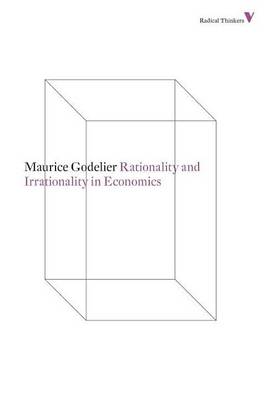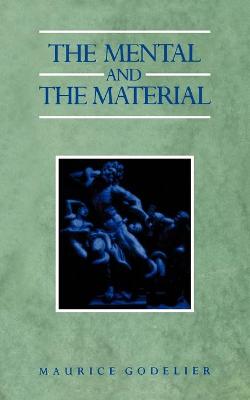Radical Thinkers
2 total works
This book is the result of a research project begun by the author in 1958 with the aim of answering two questions:
First, what is the rationality of the economic systems that appear and disappear throughout history—in other words, what is their hidden logic and the underlying necessity for them to exist, or to have existed?
Second, what are the conditions for a rational understanding of these systems—in other words, for a fully developed comparative economic science?
The field of investigation opened up by these two questions is vast, touching on the foundations of social reality and on how to understand them. The author, being a Marxist, sought the answers, as he writes, ‘not in philosophy or by philosophical means, but in and through examining the knowledge accumulated by the sciences.’ The stages of his journey from philosophy to economics and then to anthropology are indicated by the divisions of his book.
Godelier rejects, at the outset, any attempt to tackle the question of rationality or irrationality of economic science and of economic realities from the angle of an a priori idea, a speculative definition of what is rational. Such an approach can yield only, he feels, an ideological result. Rather, he treats the appearance and disappearance of social and economic systems in history as being governed by a necessity ‘wholly internal to the concrete structures of social life.
First, what is the rationality of the economic systems that appear and disappear throughout history—in other words, what is their hidden logic and the underlying necessity for them to exist, or to have existed?
Second, what are the conditions for a rational understanding of these systems—in other words, for a fully developed comparative economic science?
The field of investigation opened up by these two questions is vast, touching on the foundations of social reality and on how to understand them. The author, being a Marxist, sought the answers, as he writes, ‘not in philosophy or by philosophical means, but in and through examining the knowledge accumulated by the sciences.’ The stages of his journey from philosophy to economics and then to anthropology are indicated by the divisions of his book.
Godelier rejects, at the outset, any attempt to tackle the question of rationality or irrationality of economic science and of economic realities from the angle of an a priori idea, a speculative definition of what is rational. Such an approach can yield only, he feels, an ideological result. Rather, he treats the appearance and disappearance of social and economic systems in history as being governed by a necessity ‘wholly internal to the concrete structures of social life.
What is the specificity of the human race within nature? How is its history to be explained? What impact do material realities, natural and man-made, have on human beings? What role does thought, in all its dimensions, play in the production of social relations? How are the human sciences to be advanced today?
These are among the crucial questions confronted by Maurice Godelier, the world's most distinguished Marxist anthropologist, in this key book of contemporary social theory. Its point of departure lies in a fact and a hypothesis. The fact: in contrast to other social animals, human beings do not just live in society, they produce society in order to live. The hypothesis: because they have the unique capacity to appropriate and transform nature, they produce culture and create history. Drawing on his own extensive fieldwork and ranging over the most diverse ethnographic data, Godelier substantiates his case by attending to the analysis of both social relations of production and the production of social relations. In a sustained challenge to currently dominant schemas, he offers a series of highly original theses on the constitution, reproduction and transformation of societies, recasting the distinction between infrastructure and superstructures, illuminating the relations between economic determination and political/ideological dominance, and clarifying the character of ideology and its central role in the perpetuation of dominance and exploitation.
Theoretically ambitious and empirically rigorous, The Mental and the Material constitutes a great advance in the mode of production debate and demonstrates the enormous explanatory potential of historical materialism.
These are among the crucial questions confronted by Maurice Godelier, the world's most distinguished Marxist anthropologist, in this key book of contemporary social theory. Its point of departure lies in a fact and a hypothesis. The fact: in contrast to other social animals, human beings do not just live in society, they produce society in order to live. The hypothesis: because they have the unique capacity to appropriate and transform nature, they produce culture and create history. Drawing on his own extensive fieldwork and ranging over the most diverse ethnographic data, Godelier substantiates his case by attending to the analysis of both social relations of production and the production of social relations. In a sustained challenge to currently dominant schemas, he offers a series of highly original theses on the constitution, reproduction and transformation of societies, recasting the distinction between infrastructure and superstructures, illuminating the relations between economic determination and political/ideological dominance, and clarifying the character of ideology and its central role in the perpetuation of dominance and exploitation.
Theoretically ambitious and empirically rigorous, The Mental and the Material constitutes a great advance in the mode of production debate and demonstrates the enormous explanatory potential of historical materialism.

